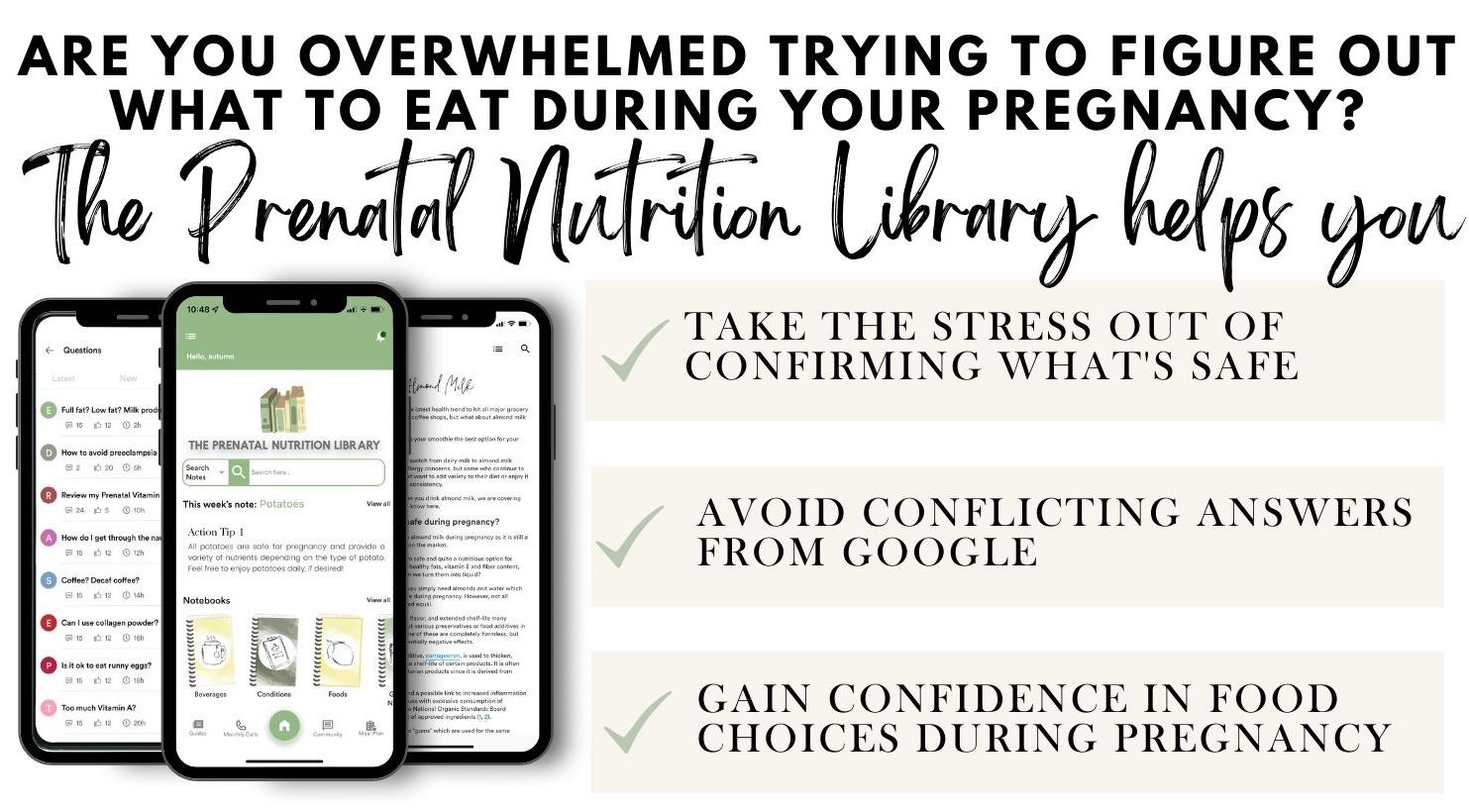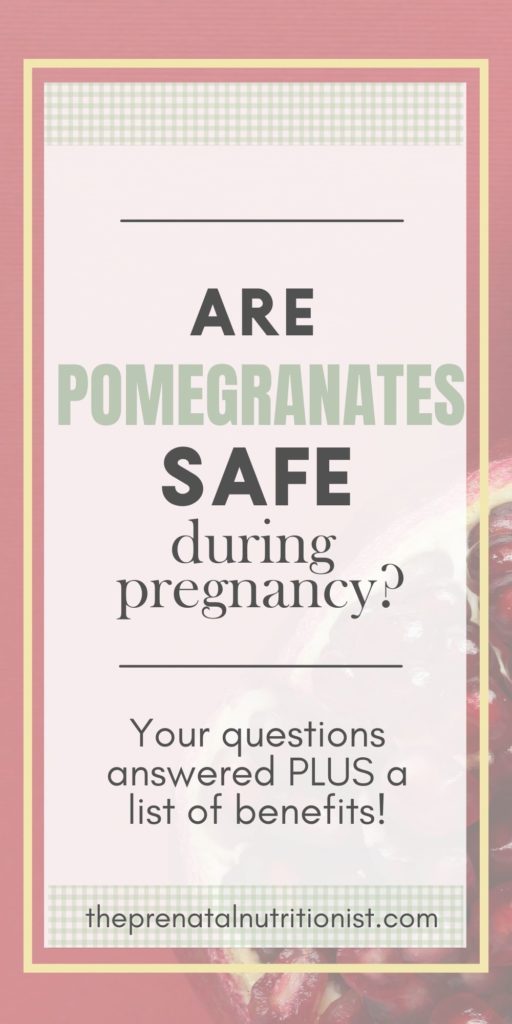
A healthy pregnancy diet consists of a wide variety of foods. We encourage focusing on foods rich in vitamins and minerals to support mom and her growing baby. But of course, there is room for some sweets and treats in every pregnant woman’s diet too.
Some foods, such as pomegranates, are especially rich in nutrients. This makes them a great option for pregnant women. If you enjoy them, the numerous health benefits of eating pomegranate make it one of the best fruits to eat during pregnancy.
If you’re wondering whether to include pomegranate in your next meal, wonder no more. Today, I will dive into the various health benefits of consuming pomegranates. I’ll also answer all your pressing questions. We will discuss whether it’s safe to eat pomegranates while pregnant and tips for eating pomegranate seeds. Let’s get into it!
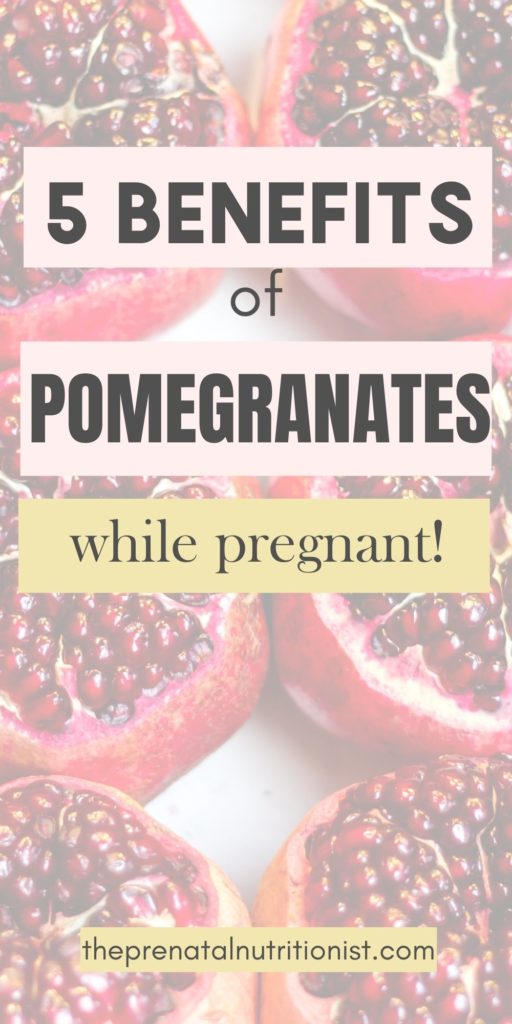
Benefits Of Pomegranate During Pregnancy
Pomegranate juice may help prevent pregnancy complications.
Research has shown drinking pomegranate juice may decrease the risk of placenta injury. This benefit likely comes from all the beneficial nutrients in pomegranates, like polyphenols and antioxidants.
Pomegranates are a great source of vitamins C and K, folate, and more!
Pomegranates help lower blood pressure.
Studies show consuming pomegranate juice helps reduce blood pressure. Pomegranate juice benefits your overall heart health, not just blood pressure. These benefits make this fruit a great addition for any pregnant person—especially those at risk for preeclampsia or high blood pressure.
Pomegranates are a good source of folate.
Adding pomegranate seeds to your pregnancy diet is a great way to ensure you’re getting enough folate. Eating foods with folate helps to reduce the risk of neural tube defects like spina bifida and anencephaly.
Pomegranates contain tons of antioxidants.
Fun fact – Pomegranate juice has three times more antioxidants than wine or green tea.
Antioxidants are substances that stop or reduce oxidation. Oxidation is a totally normal bodily process that produces free radicals. But when there are too many free radicals in our body, it causes oxidative stress. This can result in cell damage. We can eat more antioxidants to reduce oxidative stress and fight free radicals.
Basically, antioxidants help protect your body’s cells from damage. They also reduce inflammation.
Pomegranates are full of powerful antioxidants. They contain an abundance of an especially important antioxidant called anthocyanin. Anthocyanins are part of the reason pomegranates are such a beautiful shade of red. Anthocyanins and other antioxidants in pomegranates provide health benefits, including anti-inflammatory, antimicrobial, and antihypertensive properties.
Pomegranates contain essential nutrients like vitamins C and K, fiber, and potassium.
Pomegranates are a super nutritious food. They are packed with important nutrients during pregnancy—for example, vitamin C, vitamin K, fiber, and potassium.
Vitamin C is important for expectant mothers because it supports your immune system and helps to keep you from getting sick. It’s recommended that pregnant women get about 85 mg of vitamin C per day. A ½ cup serving of pomegranate seeds has 8.87 mg of vitamin C. Vitamin K is important for properly developing your growing baby’s bones.
Fiber helps to keep your digestive system working smoothly. It is also helpful to keep you feeling full and stabilize your blood sugar.
Potassium has an important role as a mineral and electrolyte! It plays a role in several crucial developmental aspects of pregnancy. One important role specific to pregnancy is its role in managing and regulating hormones. Potassium and other nutrients like calcium and phosphorus consumed during pregnancy are also important for your growing baby’s bones.
Additionally, eating more micronutrients like potassium before pregnancy may decrease the risk of gestational diabetes. Can you see why consuming enough potassium during pregnancy is so important?!
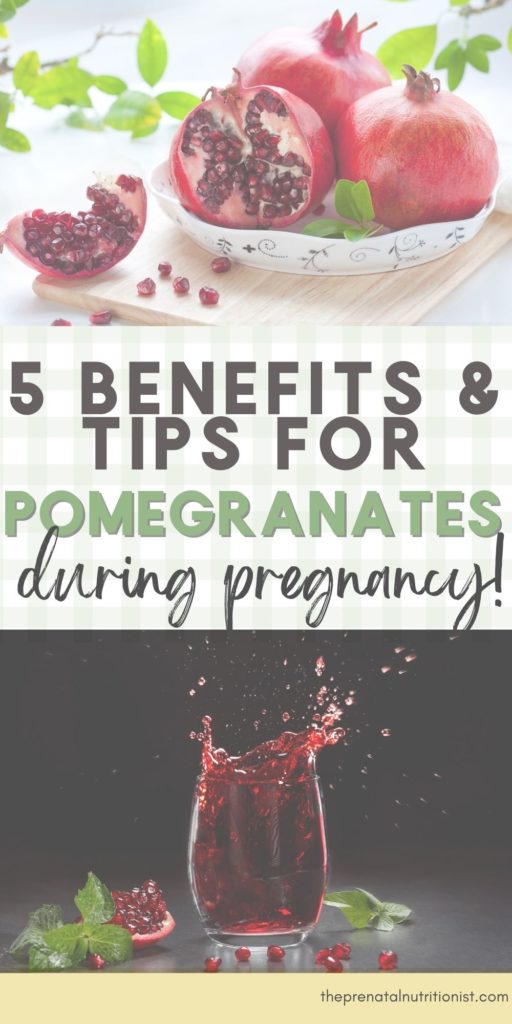
FAQs About Pomegranate During Pregnancy
Are pomegranates safe to consume during pregnancy?
Yes– pomegranates are safe to consume during pregnancy. If you enjoy them, they are recommended. Pomegranate juice may interact with some medications. If you’re taking blood thinners or statin medications, talk with your doctor first. For those with gestational diabetes, opting for seeds versus juice may be best. The juice eliminates the fiber, an important nutrient that helps slow the rate at which your blood sugar rises.
When to eat pomegranates during pregnancy?
Pomegranates are safe to enjoy throughout pregnancy. They can be eaten at meals or snack time. Pairing fruit choices with healthy fats and proteins is helpful. This helps to support balanced blood sugar levels.
As mentioned, pomegranates can be eaten during any trimester of pregnancy. In fact, this is recommended! Because it’s an excellent source of many key nutrients required for a healthy pregnancy, it could be especially beneficial during the first trimester. The first trimester is a time when folate is especially important. Folate is needed to prevent fetal birth defects, as previously mentioned.
How to eat pomegranates when pregnant?
Luckily, there are many ways to incorporate pomegranate seeds into your pregnancy diet. You can:
- Add them to your next leafy green salad
- Sprinkle them in your yogurt or oatmeal
- Throw them in your next smoothie
- Add them to your avocado toast
- Make pregnancy-approved pomegranate popsicles
- Or enjoy pomegranate juice (add a splash to your next smoothie!)
*When consuming pomegranate juice during pregnancy, be mindful of added sugars. Choose an option with no added sugars if possible. It’s best to have juice in moderation. Choose whole fruits most of the time.
What about pomegranate juice?
Pomegranate juice can be a great way to obtain the health benefits without the added crunch of the seeds. Make sure to check the nutrition facts label to ensure that it is 100% pure pomegranate juice, and that it does not contain added sugar.
One of the best parts of pomegranate is the fiber though, and with only the juice, you get no fiber, unfortunately. This fiber will contribute to keeping you full longer and stabilize your blood sugar.
However, the good news is, pomegranate juice has been linked to a potential decrease in the risk of injury to the placenta (3). A study showed pregnant women who consumed 8 oz of pomegranate juice per day were less likely to have placental oxidative stress (3). This reduction could be due to the high polyphenols and antioxidants this fruit contains (3).
Interested in adding some pomegranate juice into your diet? Try adding it into your next smoothie or homemade vinaigrette.
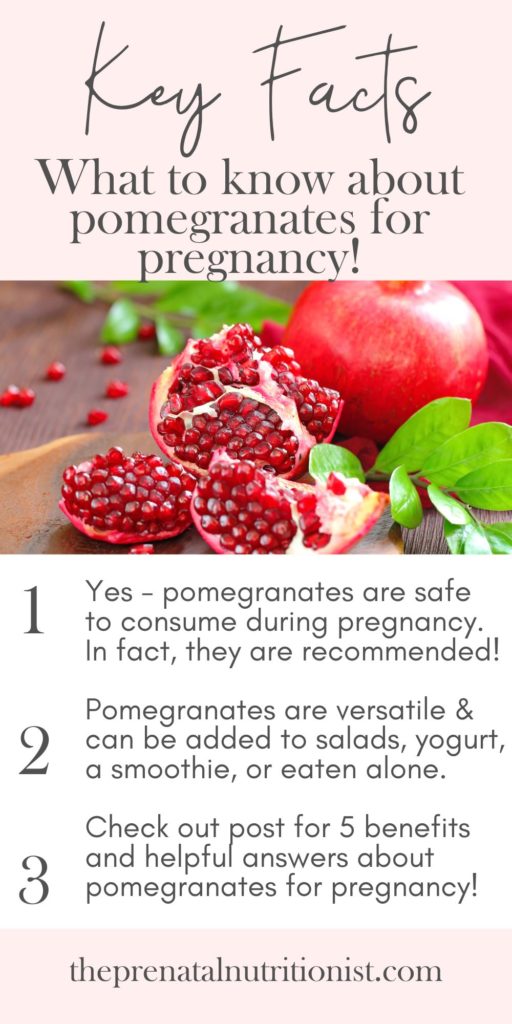
How to Prepare a Pomegranate
It is easy to be intimidated with this fruit if you are unfamiliar; however, do not fear! You will master this technique once done! The easiest method for preparing this fruit is using a bowl of water.
- Once you are ready to eat the fruit, wash the fruit and cut it into quarters
- Immerse the fruit into a large bowl of water
- Rub the fruit to remove the seeds and place the seeds in a separate bowl.
- Throw away the unusable skin, white membrane and water.
- Pat dry the seeds and store them in an airtight container. Place in the refrigerator for up to 3 days.
Pomegranates are loaded with essential nutrients, making them a beneficial part of the pregnancy diet.
If you’re looking for a way to add more diverse foods to your diet, look no further than pomegranates. These vibrant, flavorful fruits contain important vitamins and minerals that benefit both mom and baby.
To learn more about foods to include in your diet during pregnancy, fruit during pregnancy, and the foods you should avoid, check out The Prenatal Nutrition Library. TPNL is your one-stop, all-inclusive hub for ALL things prenatal nutrition that provides evidence-based, clear recommendations to ensure you have a feel-good pregnancy!
The Prenatal Nutrition Library has trimester-specific meal plans, so you don’t have to figure out what to eat every week, and you will know baby is getting the nutrients they need. Click here!



